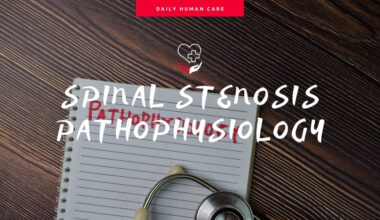This post by Daily Human Care is all about asthma, what to do when your child is diagnosed with asthma. Let’s start!
Table of Contents
Child Is Diagnosed With Asthma
Asthma is a chronic respiratory condition impacting millions of children worldwide. Discovering that your child has been diagnosed with asthma can be worrying and overwhelming for any parent. With the right knowledge and support, you can help your child manage their condition effectively and live a full and active life.

Educate Yourself
Start by educating yourself about asthma. Learn about the causes, triggers, and symptoms of asthma. Understand how it affects the lungs and airways and familiarize yourself with common asthma medications and treatment options. Armed with this knowledge, you’ll be better prepared to provide the necessary care for your child. Remember, being well-informed is the first step toward empowering both yourself and your child to effectively manage their asthma and lead a healthy life.
Communicate With the Healthcare Provider
Schedule a follow-up appointment with your child’s healthcare provider or an asthma doctor online to discuss the diagnosis in detail. Ask questions and address any concerns you may have. Gain clarity on the severity of your child’s asthma and understand the best course of action for managing their symptoms. Establish a good line of communication with the healthcare provider, as they will play a crucial role in your child’s ongoing care.
Create an Asthma Action Plan
Work with your child’s healthcare provider to develop an asthma action plan. This plan outlines specific steps to be taken during different scenarios, such as when your child experiences symptoms, encounters triggers, or has an asthma attack. It should include information on daily management, medication usage, and emergency procedures. Share this plan with all relevant individuals, including teachers, caregivers, and family members, to ensure everyone is prepared to assist your child when necessary.
Identify and Avoid Triggers
Asthma triggers can vary from person to person. Work with your child to identify their specific triggers and take the necessary steps to avoid them. Common triggers include allergens like dust mites, pet dander, pollen, and mold, as well as irritants like smoke, strong odors, and cold air. Minimizing exposure to triggers can significantly reduce the frequency and severity of asthma symptoms.
Promote Healthy Lifestyle Habits
Encourage your child to lead a healthy lifestyle that supports their respiratory health. Regular exercise is important for overall well-being, and many children with asthma can participate in physical activities with proper management. Ensure your child stays hydrated, eats a balanced diet rich in fruits and vegetables, gets enough sleep, and practices good hygiene to prevent respiratory infections.
Teach Proper Medication Usage
Depending on the severity of your child’s asthma, they may require medications to manage their symptoms. Learn how to administer the prescribed medications correctly, whether it’s an inhaler, spacer, or nebulizer. Teach your child how to use their medication properly as they grow older and ensure they understand the importance of taking it as directed.
Teach Your Child How to Self-Manage
As your child grows older, they will need to learn how to manage their asthma independently. Teach your child how to recognize the symptoms of an asthma attack, how to use their inhaler correctly, and how to follow their asthma action plan. Encourage your child to communicate openly with their doctor about their symptoms and concerns.
Stay Prepared for Emergencies
While you hope it never happens, it’s crucial to be prepared for asthma emergencies. Educate yourself and your child’s caregivers on recognizing the signs of an asthma attack and knowing when to seek immediate medical attention. Keep emergency contact numbers handy and ensure your child has access to their medication at all times, even when away from home.
Support and Empower Your Child
Above all, provide emotional support to your child. Asthma can be a lifelong condition, and it’s important to empower your child to take control of their health. Encourage them to communicate openly about their symptoms and how they feel, and involve them in their treatment plan. Help them understand that with proper management, they can still participate in their favorite activities and lead a normal life.
Conclusion
A diagnosis of asthma may feel overwhelming, but with proper support, your child can lead a healthy, active life. Create an asthma-friendly home environment by minimizing triggers and ensuring accessible medications. Foster a positive mindset to help them overcome challenges. Remember, their diagnosis doesn’t define them; with proper care, children can thrive.


